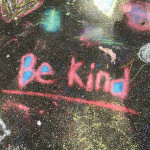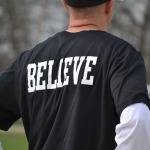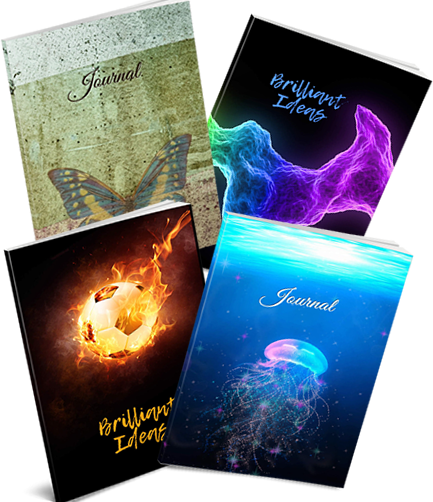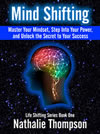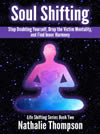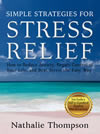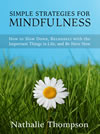
Have you ever had one of those days?
Have you ever had one of those days where absolutely everything seems to be going wrong? Where, by the time lunch hour hits, you’re just desperately wishing you’d never even gotten out of bed in the first place? I think we all have days like that once in a while, and when these days happen it’s hard not feel like the entire Universe is conspiring against you in some cruel campaign designed to make you as miserable as humanly possible.
Unfortunately, that very feeling of victimization actually makes things worse and even perpetuates the chain of negative events unfolding around you. According to the Law of Attraction (LOA), as I understand it, when these days “horrible, awful, no-good, very bad days” happen it’s completely a result of our own thinking and, therefore, completely preventable. In short, you gotta change your thoughts to change your world. Hard to swallow, isn’t it? But what if it’s true? What if the way we think actually affects what happens to us over the course of a day, and, by extension, the course of our entire lives?
LOA teaches us that what we focus on actually does become our reality. If we have a negative experience first thing in the morning and get all bent out of shape about it, focusing on it and getting angrier and more upset about it, we are conditioning ourselves to continue interpreting other events in a negative light as well. And the bad mood will just continue to grow and colour our interpretation of still more events in a great big snowball effect of misery and gloom. We start unconsciously looking for more things to support our view that this is a bad day and everything sucks. And we find them. In effect, we design and custom-build our own bad day to our exacting specifications through the process of focusing on negativity.

Focusing on a negative event attracts more negative events to you.
For example: You forget to set the alarm the night before so you wake up in a panic realizing you’re running late (dominant feeling: anxiety); then, as your tear into your bathroom for the fastest shower in the West you stub your toe on the door frame (dominant feelings: pain, anger); cursing, you jump into the shower, only to drop the bar of soap onto your already throbbing toe (dominant feelings: more pain, more anger); you forgo breakfast to make a mad dash to the bus stop, only to watch in outraged disbelief as your bus pulls away from the curb, with you only 10 steps away from the door (dominant feelings: fury, victimization); fuming, you wait for the next bus, which shows up behind schedule, cursing and mumbling under your breath about how the damn power-tripping bus drivers delight in making people late and you snap at the bus driver when you get on the bus (dominant feelings: fury, revenge). You finally get to your destination, and take 5 minutes to stop and get yourself a coffee, only to have it spill down the front of your shirt when you try to take a sip because the lid wasn’t on right (dominant feelings: fury, victimization, why does the world hate me so much?)
And so it snowballs.
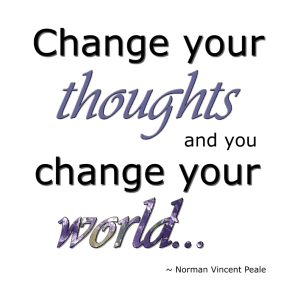
If you want to change your life, you have to start with your mind; Change your thoughts and you change your world.
How would the scenario change, though, if, instead of the panicked leap from your bed when you realized the alarm didn’t go off, you took even just two minutes to take a deep breath, change your thoughts, and say to yourself “Hey! I got a whole half-hour of extra sleep this morning! How awesome is that! Just think how much easier everything is going to be today because of it!” (dominant feelings: gratitude, excitement). I bet you wouldn’t stub your toe on the way to the bathroom. And I bet that if you dropped the soap bar at all, it would miss your toe and you’d just reach down and pick it back up. And I bet that you’d look that bus driver in right in the eye and give him a big smile making him want to wait the extra 3 seconds for you to get to the door of the bus and jump on. And so on and so forth.
If LOA is right, our world, in a very real and tangible sense, is a mirror of our own feelings and beliefs, reflecting what already exists on the inside. What we see happening around us is always interpreted through the filter of our own emotions and beliefs. If we believe that the world is a bad place, we will automatically and subconsciously look for evidence to support this belief, and we will find it. If we believe that the world is a good place, we will automatically and subconsciously look for evidence to support this belief, and we will find it. Ultimately, we get exactly what it is we want, whether we are consciously aware that we want it or not.
Fortunately, we have the ability to change our own internal dialogue, and through that we have the ability to change what we experience of the world around us. If we choose to deliberately focus on good thoughts and feelings, we will then start to see good things in the world around us that generate even more good feelings. It’s all a matter of choice.
We can choose to change our thoughts.
We can choose to change our world.



